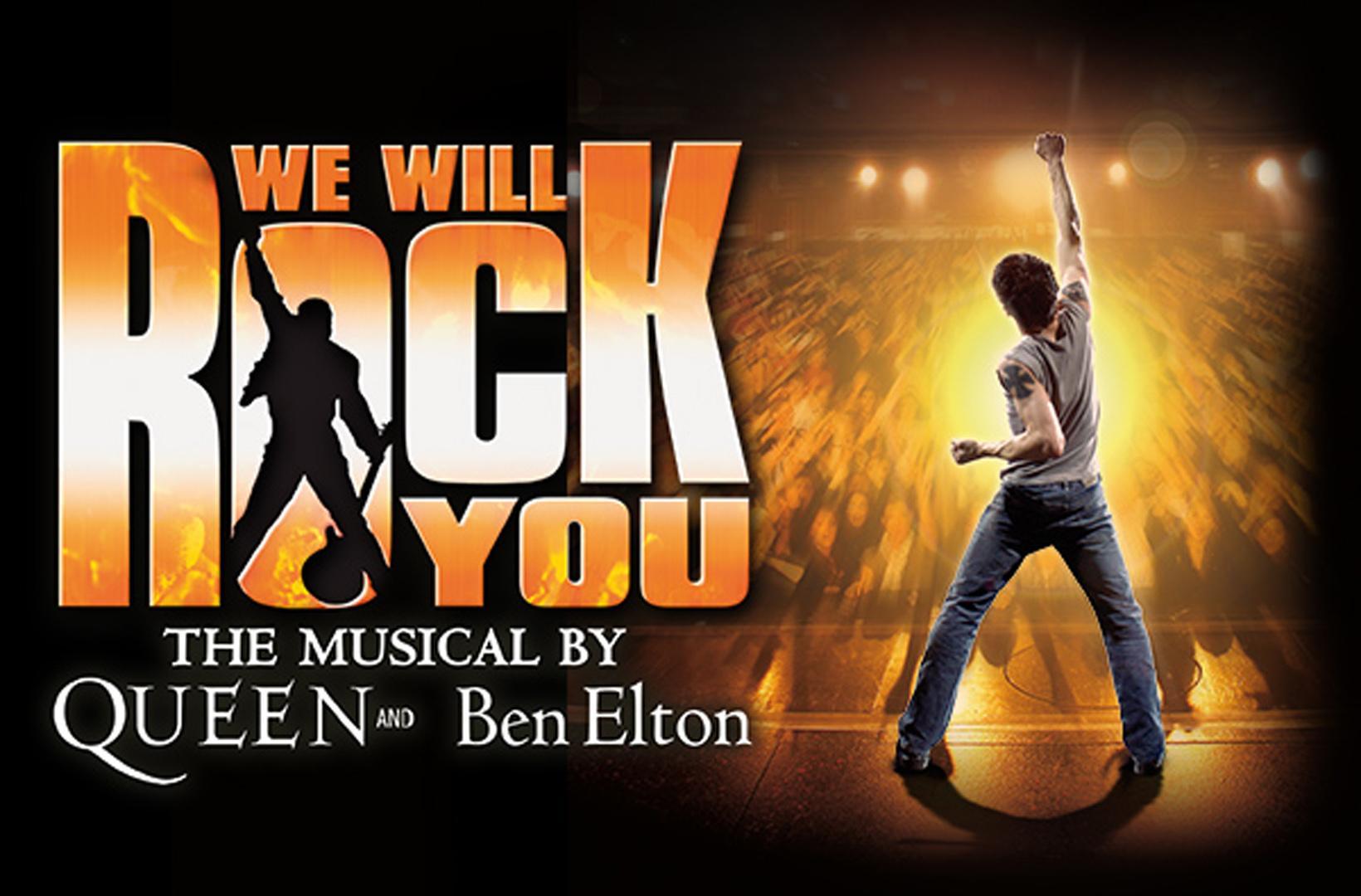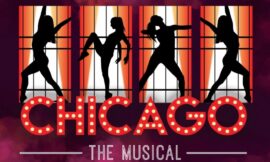We Will Rock You: The Legendary London Musical
We Will Rock You, the musical inspired by the music of the legendary British rock band Queen, is a show that has become a global phenomenon, particularly in London’s West End. Created by Ben Elton, with music and lyrics by Queen’s Brian May and Roger Taylor, the production debuted in 2002 at the Dominion Theatre in London and became an iconic part of the city’s theatrical landscape. The show, which blends Queen’s timeless rock hits with a futuristic, satirical story, captured the hearts of audiences worldwide, staying in London’s West End for over a decade and reaching audiences on a global scale through its worldwide tours.
The Origins of We Will Rock You
The creation of We Will Rock You was the brainchild of Queen’s guitarist Brian May, drummer Roger Taylor, and playwright Ben Elton. In the early 2000s, they wanted to create a new kind of musical that would appeal to a younger generation while celebrating the music of Queen. Queen’s music, which includes such hits as “Bohemian Rhapsody,” “We Are the Champions,” “Somebody to Love,” and “Under Pressure,” was known for its anthemic quality, theatricality, and wide appeal, and the band wanted to create a show that would tap into the power of their music while telling an engaging, futuristic story.
Ben Elton, who was famous for his work on television comedies such as The Young Ones and Blackadder, was tasked with writing the book for the musical. Elton’s comedic and satirical style fit perfectly with the spirit of Queen’s music, which had always been bold, irreverent, and defiant. Together with May and Taylor, they crafted a narrative set in a dystopian future where live music and individuality have been outlawed, and a corporate-controlled society dominates. This setting would provide a unique backdrop for Queen’s legendary songs to come to life.
The Storyline: A Dystopian World of Corporate Control
We Will Rock You takes place in a futuristic society called “iPlanet,” where all forms of individuality and live music have been banned. Music is created by computer-generated programs, and everyone is expected to conform to the latest fashion trends dictated by a corporate regime. The villainous “Killer Queen,” played originally by Sharon D. Clarke, runs the oppressive global regime, and her enforcers, the “Ga Ga Girls” and the “Bohemians,” keep the population in line.
The central characters of the story are Galileo, a rebellious young man with a mysterious connection to rock music, and Scaramouche, a sarcastic and quick-witted woman who is equally resistant to the controlling regime. Together, they form a pair that represents the fight for freedom of expression, the rebellion against conformity, and the return of rock ‘n’ roll to the world. Their quest is to find the “Guitar,” an object that is rumored to hold the power to bring back live music and restore artistic freedom to the world.
In the musical’s narrative, Galileo and Scaramouche join forces with a group of rebels known as the “Bohemians,” who are dedicated to reviving live music and overthrowing the corporate regime. Along the way, they encounter challenges, including the Killer Queen’s attempts to thwart their mission. The plot touches on themes of conformity, rebellion, the power of music, and the importance of individual expression—concepts that resonate deeply with audiences, especially in a world where creativity and free thought are often seen as threats to authoritarian powers.
The Music of Queen
One of the most remarkable aspects of We Will Rock You is its use of Queen’s legendary music. The show includes many of the band’s most iconic songs, which serve to drive the story forward while creating a sense of nostalgia for Queen fans. The musical features an impressive selection of Queen’s greatest hits, including “We Will Rock You,” “We Are the Champions,” “Somebody to Love,” “Bohemian Rhapsody,” “Another One Bites the Dust,” “Under Pressure,” and “Radio Ga Ga.”
The songs are woven seamlessly into the narrative, often taking on new meanings within the context of the dystopian world of iPlanet. For example, the anthem “We Will Rock You” becomes a rallying cry for the rebels, and “Bohemian Rhapsody” serves as a powerful emotional climax, highlighting the struggle for individuality and freedom. The combination of Queen’s timeless music and Ben Elton’s satirical script creates an energetic and dynamic theatrical experience that resonates with both longtime Queen fans and newcomers to the band’s music.
The music is performed by a live band on stage, with the cast providing vocals that bring Queen’s songs to life. The show’s choreography, directed by Arlene Phillips, further amplifies the power of the music, with energetic dance numbers that reflect the rebellious and theatrical nature of Queen’s sound.
The London Premiere and Reception
We Will Rock You opened at the Dominion Theatre in London on May 14, 2002, with a cast that included several notable actors and performers. The original production starred British actor and singer Tony Vincent as Galileo, and the role of Scaramouche was played by actress and singer Elena Roger. The show was a hit from the beginning, drawing in large audiences with its exciting mix of rock music, humor, and visual spectacle.
The West End production of We Will Rock You became an immediate success, with critics praising the show’s energy, its use of Queen’s music, and its ability to entertain audiences of all ages. The show resonated with Queen fans, who were excited to hear their favorite songs performed live in the context of a larger-than-life musical. It also attracted a new generation of theatergoers, many of whom were discovering Queen’s music for the first time through the musical.
In addition to the West End production, We Will Rock You became a global phenomenon, with successful productions in cities such as Toronto, Las Vegas, Melbourne, and several others. The show’s international success helped solidify its place in musical theater history as one of the most popular and enduring jukebox musicals of all time.
The Legacy and Impact of We Will Rock You
The success of We Will Rock You in London and around the world has had a lasting impact on both the Queen legacy and the theater world. Queen’s music, which continues to be beloved by fans around the world, received a new generation of listeners thanks to the musical. The show helped introduce Queen’s iconic songs to younger audiences who may not have been familiar with the band’s extensive catalog. It also reignited interest in Queen’s music, leading to a resurgence in sales of their albums and a renewed appreciation for their influence on rock music.
The show’s impact on the West End was equally significant. We Will Rock You ran in London for more than 12 years, making it one of the longest-running musicals in West End history. It became a cultural landmark, helping to bring more diverse audiences to the theater and demonstrating the power of music-driven theater productions.
In addition to its commercial success, We Will Rock You also had a cultural impact by blending the worlds of musical theater and rock ‘n’ roll. The show demonstrated that musicals could embrace the energy and power of rock music while still maintaining the storytelling elements of traditional theater.
Conclusion
We Will Rock You remains a defining musical of the 21st century, celebrating the timeless music of Queen while delivering a powerful message about individuality, rebellion, and the power of music. Its success in London and beyond has cemented its place in musical theater history, and the show continues to be enjoyed by audiences around the world. With its thrilling music, memorable characters, and powerful themes, We Will Rock You is a musical that will continue to rock the stage for years to come.


